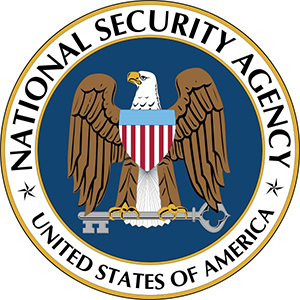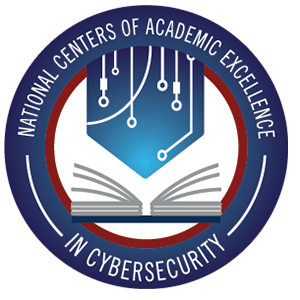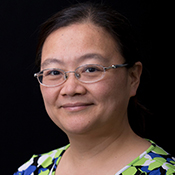Request Information
Ready to find out what MSU Denver can do for you? We’ve got you covered.
MSU Denver’s Cybersecurity Center has been designated by the National Security Agency as an NSA Center of Academic Excellence.


Everything in the digital world is constantly changing, including the ways criminals operate. Computers are the new weapons and the sinister ways they are being used are becoming harder and harder to track. With a degree in Cybersecurity from MSU Denver, you’ll have all the training and expertise needed for a challenging, rewarding and secure career.
The Cybersecurity major is jointly offered by the departments of Criminal Justice and Criminology, Computer Information Systems and Mathematical and Computer Sciences. With the knowledge and support of three academic departments, Cybersecurity students will be prepared with the knowledge and skills necessary to investigate computer crimes, properly seize and recover computer evidence, prevent cyber crimes and punish cybercriminals. This social science-based degree will also provide students with in-depth knowledge in practical skills in making cybersecurity-related policy, managing cyber threats and securing cyberspace.
With an emphasis in hands-on learning, Cybersecurity graduates will be well prepared for their exciting new careers. The demand for cybersecurity jobs across the U.S. has skyrocketed in recent years and the trend doesn’t show signs of slowing down any time soon.

On successful completion of this Program of Study graduates will have the ability to:
There aren’t a lot of universities in the U.S. that offer a degree in Cybersecurity. Even fewer of these universities offer this program with the conjunction of three different academic departments. Denver has caught the eye of the tech industry; startups are choosing the Front Range as their home because of the abundance of tech talent and rapid industry growth.

Nationwide, the demand for positions in cybersecurity continues to grow. More than 200,000 cybersecurity jobs are unfilled in public and private sectors, and postings are up 74 percent over the last five years. The demand is expected to remain high as the need for cybersecurity professionals has grown three times as fast as traditional IT jobs. The following are a few examples of potential jobs in the cybersecurity field:
 LiYing Li
LiYing LiDr. LiYing Li is a professor of Criminal Justice and Criminology. She has a Ph.D. in Sociology and M.S. in Demography. Her primary teaching interests are criminal behaviors. Currently, she teaches serial killers, sex offenders, introduction to criminal justice systems and corrections. She has also taught in the past classes such as statistics, research methods, crime mapping and criminological theories. From the ground up, Dr. Li has played an essential role in creating the B.S. in Cybersecurity program and developing the Cybersecurity curriculum.
 Janos Fustos
Janos FustosComputer Information Systems professor Dr. Janos T. Fustos earned his doctorate in engineering management, masters in chemical engineering and B.S. in factory operations management. He is involved throughout the University in committees that determine IT strategies, policies and procedures. Dr. Fustos is an expert in computing, having taught web development, web site administration, web programming and information systems security.
 Weiying Zhu
Weiying ZhuBefore joining MSU Denver in 2011, Dr. Weiying Zhu worked as a software engineer for Lucent Technologies and as a professor at Hampton University. She earned her M.S. in Communication and Information Engineering from Huazhong University of Science and Technology in Wuhan, China before receiving her Ph.D. in Electrical and Computer Engineering from Old Dominion University in Virginia. Dr. Zhu has been honored with a plethora of awards for teaching and research, most recently for the Provost Teaching Innovation Award in 2010. Her expertise in computer science helped build the curriculum for the Cybersecurity degree at MSU Denver.
 Steve Beaty
Steve BeatySteve Beaty, Ph.D., has an extensive background in both the theoretic and pragmatic aspects of computers and networks. He wrote compilers at Cray Computer, managed a large group of developers and was a software test architect at Hewlett-Packard. He was also the security team lead at the National Center for Atmospheric Research in Boulder. At Metropolitan State University of Denver, Beaty is currently a professor of Computer Science and has served as chair of the Mathematical and Computer Sciences Department and interim vice-president for Information Technology.
 Di “Ruby” Jia
Di “Ruby” JiaAs a former police officer in China, Di Jia, Ph.D., worked in the areas of intelligence analysis, incident command, international police cooperation, crisis management and counter-terrorism. Her expertise guided her to plan and implement security operations for the Beijing Olympic Games in 2018. She received her Ph.D. in Criminal Justice at Sam Houston State University and published several peer-reviewed scholarly articles in journals across the world. Her research and teaching interests include police crisis management, counter-terrorism strategies, cybercrime and cybersecurity.
Contact the Office of Admissions
Jordan Student Success Building (JSSB) – 180, Box 16
Phone: 303-556-3058